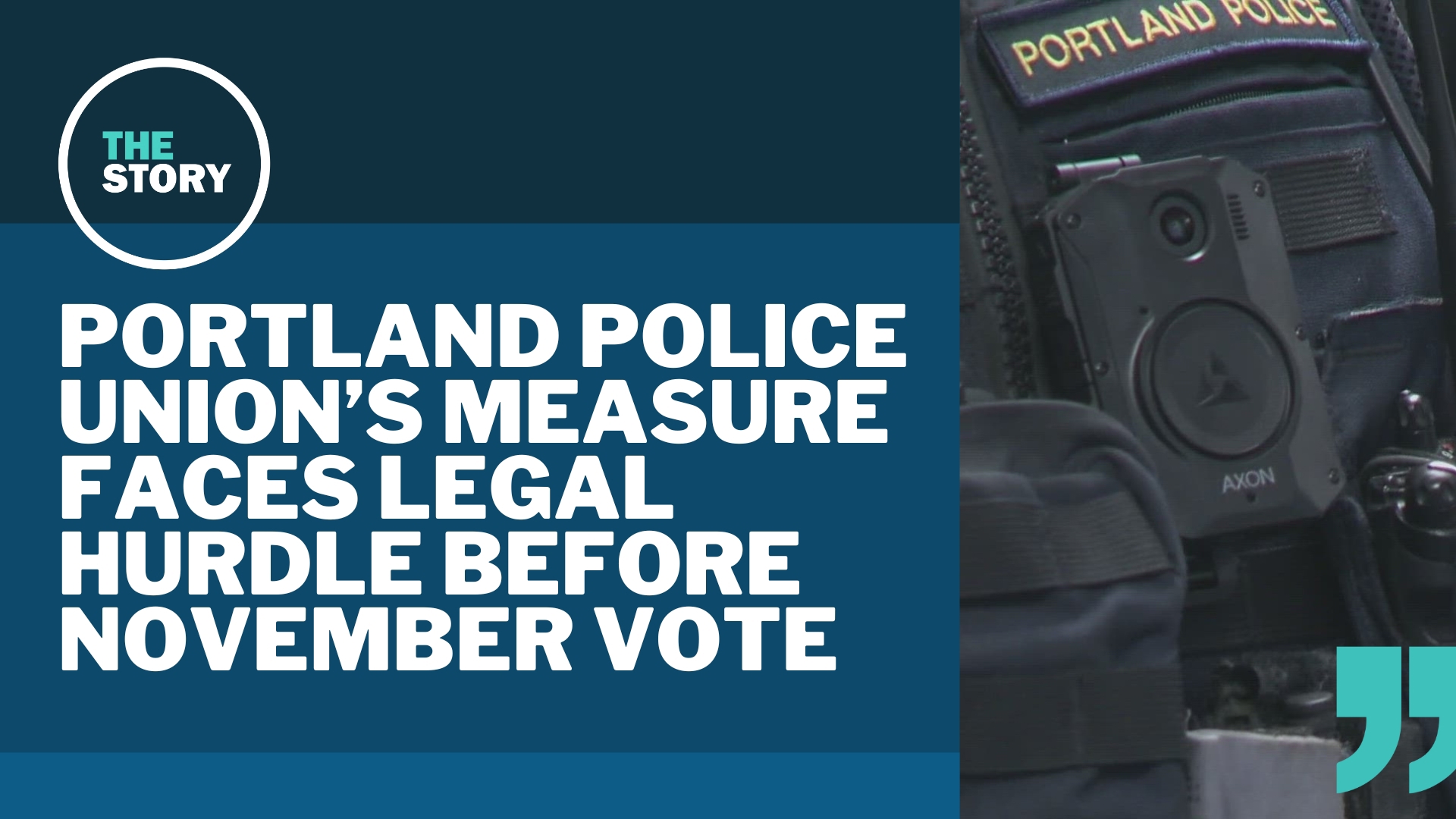PORTLAND, Ore. — In Tuesday's primary, the city of Portland did not feature heavily on ballots of even city residents. That's because a great many important votes are heading straight to November — including, possibly, an option to dilute the city's new police oversight board before it's had a chance to even begin reviewing cases.
The issue goes back to 2020, following the murder of George Floyd in Minneapolis and nationwide protests for racial justice and against police brutality. During that year, Portland voters went 82% in favor of a measure that would overhaul the oversight system for the Portland Police Bureau.
The measure directed the city to establish a new independent police accountability and oversight board. Pending approval from the U.S. Department of Justice, the new board is set to be up and running in 2025.
Many supporters of the measure felt that the language Portland City Council ultimately adopted already served to chip away at some of its efficacy. And from the beginning, Portland's police union wanted none of it. The Portland Police Association (PPA) sued to stop the oversight board from happening, but their attempt was unsuccessful.
Late last year, the PPA commissioned a pointedly worded survey from polling firm DHM Research to gauge public opinion on the oversight board — among other police-related matters — and used the results to bring forward two measures of their own.
POLL: Portland voters are open to police union's ideas for limiting civilian oversight board's authority
As the PPA did with the police oversight measure, the ACLU then sued to block the PPA's measures.
Earlier this month, an Oregon circuit court judge ruled against one of the PPA's initiatives. Measure 1 would have, among other things, required the city to increase and maintain the number of patrol officers, as well as create and maintain a 24-hour drug detox center.
The judge ruled Measure 1 unconstitutional, on the grounds that ballot measures are supposed to change policy, not make administrative decisions like hiring more officers.
There's been no similar ruling as yet on Measure 2, but the ACLU said that it would "gut the independent oversight and disciplinary powers" of the new police oversight board.
And that is essentially the point of the initiative: Measure 2 would remove the new oversight board's ability to discipline officers, leaving that to the police chain of command.
Portland already has several police oversight bodies in place which do not have the power to enforce disciplinary action — this new board was supposed to replace them and give its civilian members authority independent of law enforcement. Under PPA's measure, the board's power to investigate cases would be much more limited.
Other cities — including Seattle, Tacoma, San Francisco and New York — tend to have oversight boards that cannot enforce disciplinary action for officers. Instead, they send a recommendation to the police chief, who makes the final decision.
The PPA's measure would also change membership rules for the board so that current and former law enforcement workers or their family members would be allowed to serve on it.
The oversight board, as it exists right now, is required to seek a diverse membership, with a focus on people who may have had frequent interactions with police. It would also prioritize people who have experienced systemic racism, addiction or who have suffered from mental illness.
Under the PPA's measure, all members of the public would be eligible to be on the board, so long as they live or work in Portland.
The ACLU argues that this would actually reduce the diversity of membership and would allow people with law enforcement ties to hold power on the board. The PPA argues that the existing structure will create a board stacked against police.
As a whole, the ACLU is arguing that Measure 2 is unconstitutional not because of the amendments themselves, but because of the way it's written. They say that it is misleading and downplays the dramatic changes it would make to what voters overwhelmingly approved back in 2020 — changes that have yet to even take effect.
Editors note: On Friday, a judge ruled that the PPA's ballot measure can move forward, with some changes to the ballot title (the short description of what it would enact), making clear that the measure would weaken the oversight board's authority. With six weeks left to gather signatures, it's unclear if the PPA can or will proceed.

